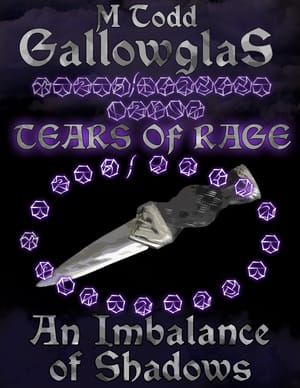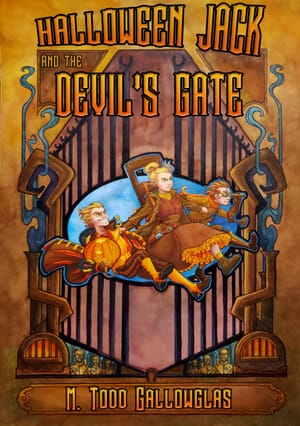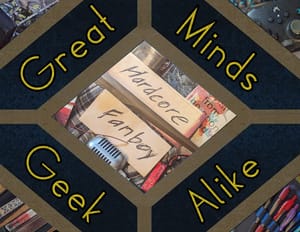10 Books that A.I. Could Never Write
I've been hearing a lot of writers talking about the evils of A.I.-generated stories. I won't lie. I've had some of the same concerns, but that led me to think: what are some books that A.I. might never be able to emulate? I have no doubt that A.I will be able to churn out basic, plot-based narratives following basic story structures, and lazy "writers" will flood the market with them in hopes of making a quick buck. However, I also believe that discerning readers will constantly seek out books that they can read with the assurance that no machine could have come up with something like this. Here's a list of some.Murderbot Diaries, by Martha Wells - Because I appreciate irony, I'm starting this list with a series of stories about an artificial intelligence writing about what it's like being an A.I. in a universe full of humans. I don't think a computer will be able to handle the subtlety and nuance Wells infuses into these stories.Ready Player One, by Earnest Cline - While I do think an A.I. could generate a story full of pop culture references, I don't think it could weave those references into a story in such a way that also helps both character development and move the story forward. Redshirts, by John Scalzi - I'm including this one for much the same reason I'm including Ready Player One. The levels of meta that permeate this book would be impossible for an A.I. to emulate. No amount of playing with prompts like, "Write a post-modern, meta-fiction spoof of Star Trek," would generate this book.Flowers for Algernon, by Daniel Keyes - A.I. couldn't handle the language aspect of the narrator's transition between intellectual states. More than that, it couldn't offer those transitions with tension and empathy required to make this one of the all-time classics of science fiction literature.Riddley Walker, by Russel Hoban - If A.I. couldn't handle Flowers for Algernon, then it really couldn't handle possibly the most brilliant post-apocalyptic novel ever written. Even if A.I. could manage to keep the pidgin English of this narrator's voice consistent, I don't think it could do so while maintaining a coherent narrative.Solar Bones, by Mike McCormick - I don't think that A.I. will ever be able to handle a stream-of-consciousness story from the perspective of an Irish civil engineer reflecting on his life while walking through his house told in a single sentence. I just think this level of creative brilliance will be beyond anything other than a human mind.A Visit from the Goon Squad, by Jennifer Egan - The first book to make it into 10 for Tuesday twice. No chapter in this book is written from the same perspective. One of the chapters isn't even prose. The whole time, as the chapters move up and down the timeline, some separated by decades, Egan maintains consistent unspoken threads that I don't think A.I. is going to grasp anytime soon, if ever.Malazan, by Steven Erikson and Ian C. Esslemont - This is a bit of a cheat because it's a series and not a single book, but... With over 20 books, many of them doorstopper tomes, spread out over multiple generations and continents, and a cast of well over a hundred named characters, not to mention the vast array of disparate cultures interacting... yeah... In book #8 of the main series, a sentence refers back to a paragraph in book #1. A.I. just ain't gonna be able to do this level of narrative cohesion.Discworld, by Sir Terry Pratchett - Another series, but one vital to this conversation. I think it's going to be a long, long time before A.I. will be able to handle humor on any but the most basic levels, let alone deep satire and irony. I don't think A.I. will ever be able to interview humor with the basic grace and compassion of the human condition that Pratchett offers throughout these books.The 9/10 Memwar, by M. Todd Gallowglas - When I first started these 10 for Tuesday lists, I meant to not mention any of my personal works, but this one fits too well because it takes in some bits of what A.I. does but takes them to places I don't know that A.I. will be able to go in the foreseeable future. I'm including this book because, as the author, I can talk about its creation process more than I can the other works on this list. I owe the structure of this book to Reasons She Goes to the Woods. The narrator's voice comes from Riddley Walker, Flowers for Algernon, and Beast of No Nation. The story comes out of a lifetime of reading fantasy novels and playing RPGs. The process came from getting a leather journal and seeing if I could write a compelling story one page a day for a year. Oh, yeah, and then part-way through asking supporters of my Patreon to give me random words to include every month. These influences are just too disparate, varied, and crazy for A.I. to generate into anything other than a jumbled mess.That's my list. What do you think? Got any other crazy books or series that could only come from human imagination?








